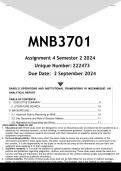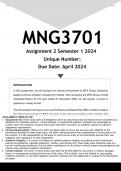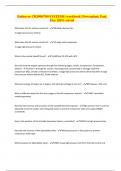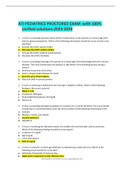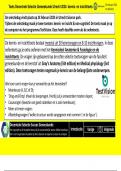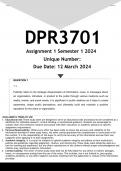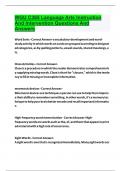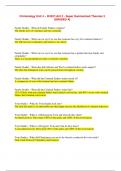Exam (elaborations)
MNB3701 Assignment 4 (ANSWERS) Semester 2 2024 - DISTINCTION GUARANTEED
- Institution
- University Of South Africa (Unisa)
- Book
- Global Business
Well-structured MNB3701 Assignment 4 (ANSWERS) Semester 2 2024 - DISTINCTION GUARANTEED. (DETAILED ANSWERS - DISTINCTION GUARANTEED!).....
[Show more]
